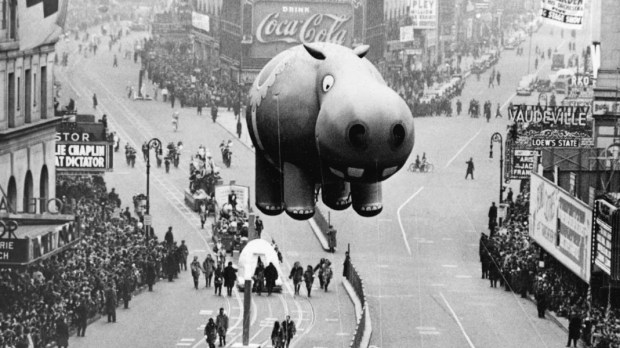Larry Peterson tells here the story of his own ancestors, passed down through the generations.
During the early morning hours of November 24, 1906, a ship quietly slid against the ebb-tide waters of the Narrows and entered New York harbor. On board were almost 2,000 people, mostly immigrating Europeans. Through the emerging light of the new dawn, the Statue of Liberty came into view. The appearance of the great icon had them mesmerized. They had arrived at their new home, America.
Among the people on board was a little girl from Hungary. Her name was Julia, and she was four years old. She held a small rag doll tightly in her arms. At that moment in time, it was the only link she had to security and happiness.
Eight days earlierJulia had hugged her poppa good-bye. She remembered his stubbly beard tickling her face. He had reached into the pocket of his big wool overcoat and pulled out a surprise. It was a doll. He smiled and said, “For you, Shkutabella (my little pretty). Her name is Rachel, and I made her for you. As long as you have her, I will always be with you even if I am not there. Do you understand?”
Julia nodded her head up and down, and her mom said, “Please Bollassar, please come with us. I do not like going without you.”
“Viola, it is all right. I will be over in a year. My brother George will take care of you. It is all right.”
Viola and Julia had boarded the ship and set off. Just a few days into their journey, as the lonely mother and daughter stood on the deck, a life-boat broke free from its support cable. It fell and hit Viola, killing her instantly.
Julia’s mom had been standing next to her and then she was lying lifeless on the deck. The child’s young mind could not understand why her mom did not move. She screamed at her to wake up. That would never happen.
When the ship docked at the pier, all Julia knew was fear and loneliness.
At Ellis Island, a bizarre series of events saw Julia shuffled from one official to another and when a lady smiled at her, the official nearby assumed they were together and made Julia go with the lady. The woman took Julia as far as Broome and Varick Streets in lower Manhattan. She told the child to stay there and walked away. Just like that, Julia had become another abandoned child on the streets of the city.
Little Julia, holding Rachel, had been standing in the same spot for more than an hour. She was cold, hungry, and frightened beyond belief when the beat cop, Paddy Dolan, approached her. He was instantly smitten with the dark-haired, blue-eyed child and asked her her name. Hesitatingly she said, “Julia.”
Officer Dolan brought her with him to the station-house, and after checking as much as anyone could in 1906, she was declared an orphan. But this orphan was not going to an orphanage. Paddy Dolan brought her home.
Paddy’s wife, Aileen, a wee wisp of a gal from County Galway in Ireland, could not have children. Paddy and Aileen adopted Julia, and she became Julie Dolan. She grew up to be a teacher, married a man named Tommy O’Rourke (also a policeman), and they had three children: two boys and a girl. The girl was named Viola.
On Thanksgiving Day 1951, Julia, her daughter Viola, and Viola’s four-year-old daughter, Karen, went to the Macy’s Thanksgiving Day Parade. They stood in the crowd at 63rd Street and Central Park West and, after Santa had passed by, Viola suggested that they go to the Squire’s Restaurant a few blocks away.
Karen was holding Rachel, Grandma Julia’s doll. Karen loved the doll and, in a moment of weakness, Grandma Julia had allowed her to take the doll with her to the parade. Rachel had not been out of the house in more than 40 years.
They sat in a booth at Squire’s and Karen placed Rachel on the table. Julia reached over and fingered the doll lovingly. Suddenly a man stood by their table. He was old and weathered and quite nervous. A chill ran down Julia’s spine. The man pointed to the doll and nervously said, “Excuse me…is..is that doll named Rachel?”
Viola, not seeing her mother turning pale, answered, “Why yes, how could you know such a thing?”
As tears fell from the old man’s eyes, he looked at Julia and softly said, “Is it really you, Shkutabella?”
Julia jumped from her seat and threw her arms around the old man. “Oh Poppa, Poppa, Poppa. I can’t believe it. Yes it is. It is. It is ME.”
HAPPY THANKSGIVING

Read more:
An American soldier’s touching love letters from World War I

